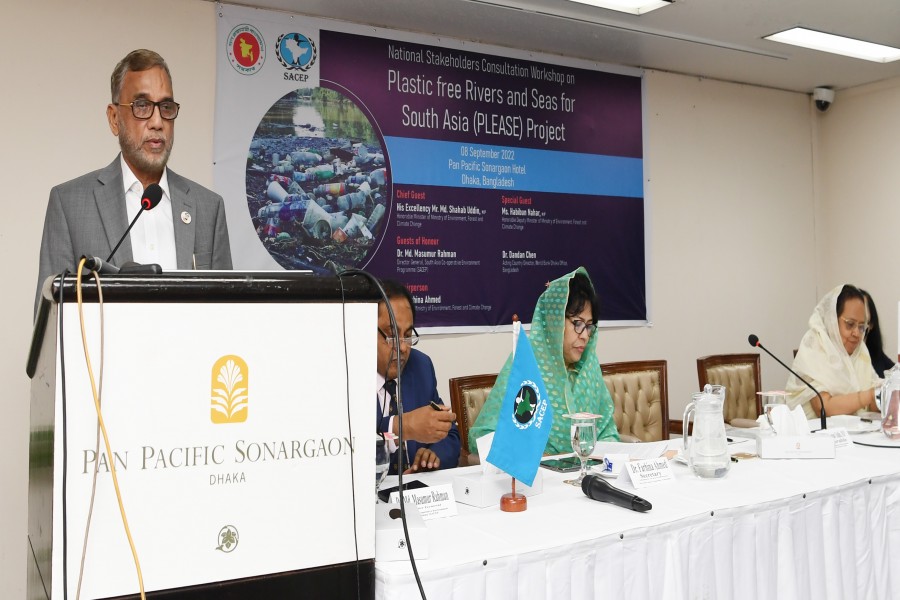The government has endorsed a roadmap to phase out single-use plastic in coastal areas to protect the environment from the deadly pollution and ensure a clean coastal environment.
The Ministry of Environment has issued a gazette notification to this effect, according to officials on Thursday.
The national action plan for sustainable plastic management, the roadmap, focuses on circular use of plastic, based on a 3R strategy: Reduce, Reuse, Recycle.
This will help to create new value chains, skills, innovative products and green jobs while addressing social and environmental challenges, according to the environment ministry.
Environment Minister Md Shahab Uddin said the government has finalised ‘Towards a Multisectoral Action Plan for Sustainable Plastic Management in Bangladesh’. The 8th Five Year Plan has focused on improving solid waste management.
He said this as the Chief Guest at the National Stakeholder Consultation Workshop on Plastic Free Rivers and Seas for the South Asia (PLEASE) Project held in Pan Pacific Sonargaon Hotel on Thursday.
Secretary of the Ministry of Environment, Forest and Climate Change Dr Farhina Ahmed presided over the function. Deputy Minister Ministry of Environment, Forest and Climate Change Habibun Nahar was present as the special guest.
Acting Country Director of World Bank to Bangladesh Dandan Chen addressed the event as guest of honour while Director General of Department of Environment Dr Abdul Hamid was also present
The environment minister said microplastics are getting into our food chain which are dangerous for human health.
Addressing plastic pollution is an opportunity to innovate and create green jobs with a view to ensuring a green growth pathway for Bangladesh, he said, “We must continue to take determined and bold initiatives to find a promising dimension to our sincere cooperation.”
‘Plastic-free Rivers and Seas for South Asia project’ launched by the Parley for the Oceans, and the South Asia Cooperative Environment Programme (SACEP) with the support from the World Bank of about the US 50 million dollars will support eco-innovations in the region.
In the workshop, representatives of various ministries, departments and government agencies, development aid agencies, civil society expressed views GOs and representatives of the media expressed their views on behalf of their respective organisations on stopping plastic pollution.


